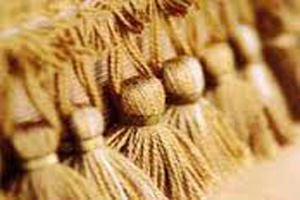
Farmers looking ahead for approval of GM jute from GEAC
YarnsandFibers News Bureau 2014-04-09 15:01:00 – MumbaiUniversity of Calcutta has developed genetically modified (GM) jute. The genetic modification by gene sequencing can produce the required quality and varieties of jute like the longer fibres and different colours. The GM jute has been forwarded to the regulator, Genetic Engineering Approval Committee (GEAC) for commercial approval.
GM jute will become the second crop of its kind to get approval, after the GM cotton which was approved in 2002 for commercialization
Jute being a non-food crop, GEAC should have no problem in approving it as the regulator is more concern on food items. The farmers are look ahead to getting approval from GEAC. This will be a replication on GM cotton success for GM jute.
India’s jute sectors installed capacity stands at round 1.5 million tonnes and its manufactures nearly 1.2 million tonnes of bags annually of which about 40 percent of the jute bags produced are procured by the Union food ministry.
Through Food Corporation of India on behalf of different state food procuring agencies the bags procured are utilized to packing food grains.
Of the 250 million tonnes of food grains produced annually, almost 30 percent of food grains are packed in jute bags worth around Rs 6,000 crore.
Market Intelligence
Ask for free sample Report

experience
Customer Base
dedicated team
Countries Served Worldwide









